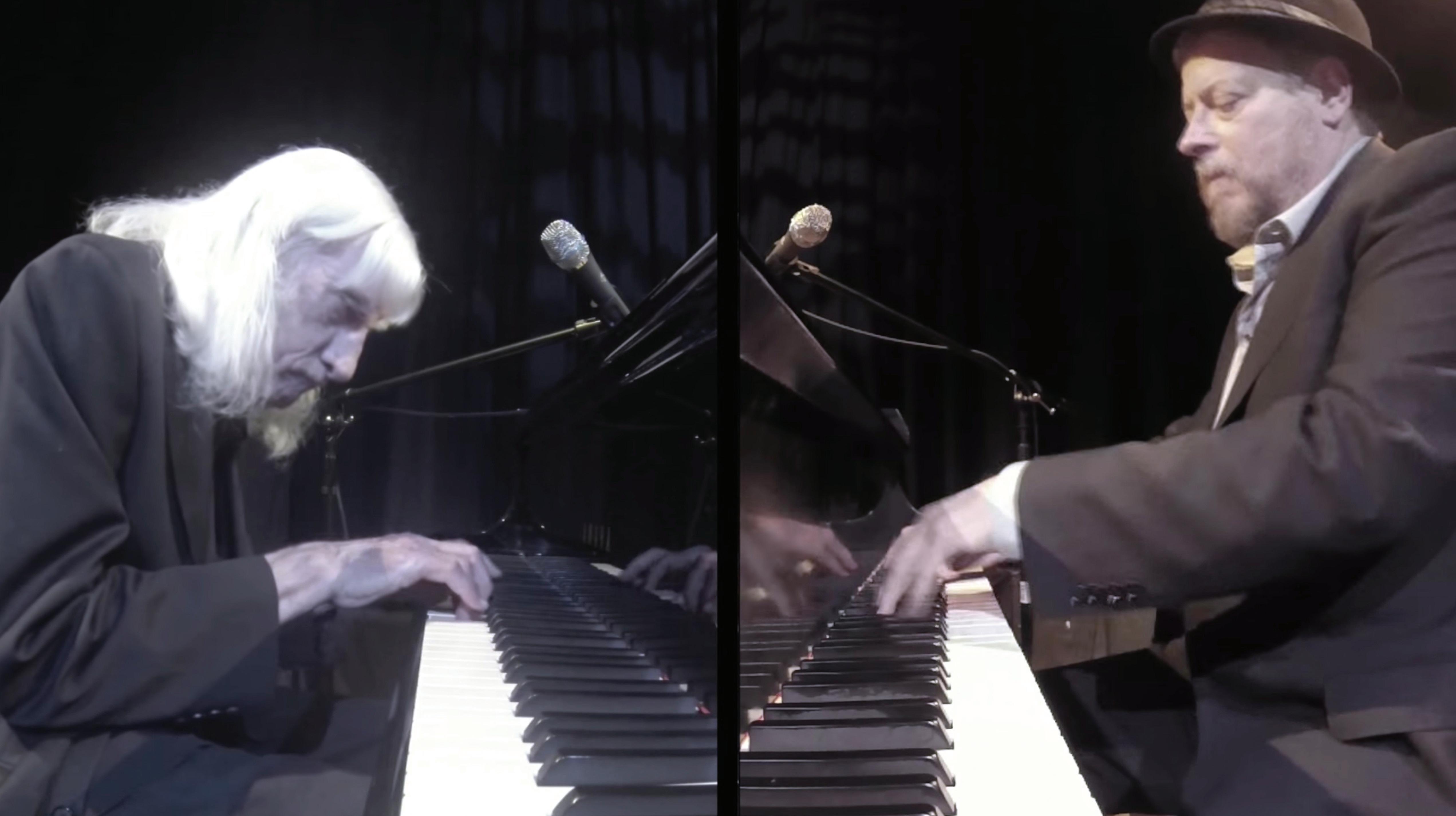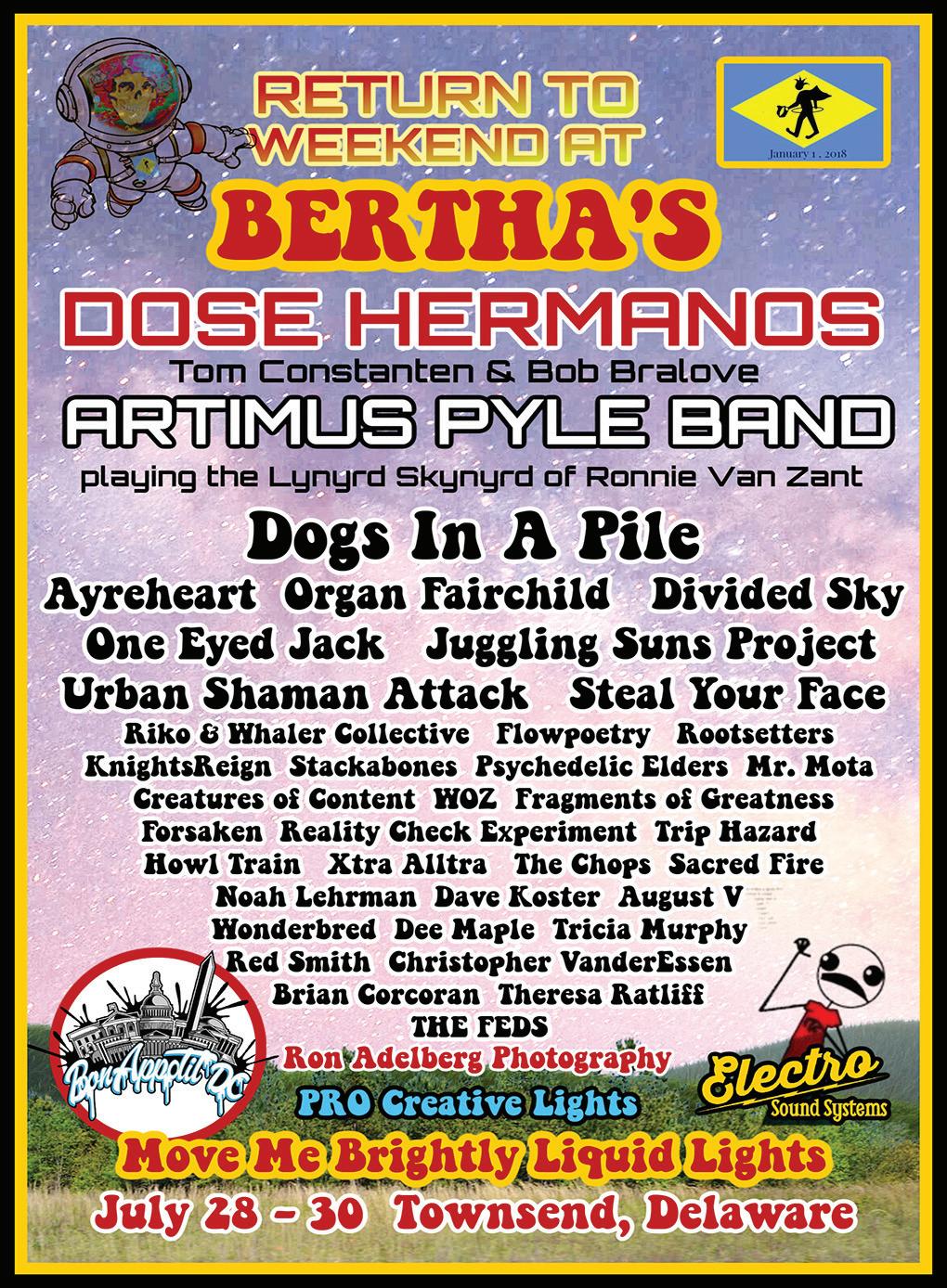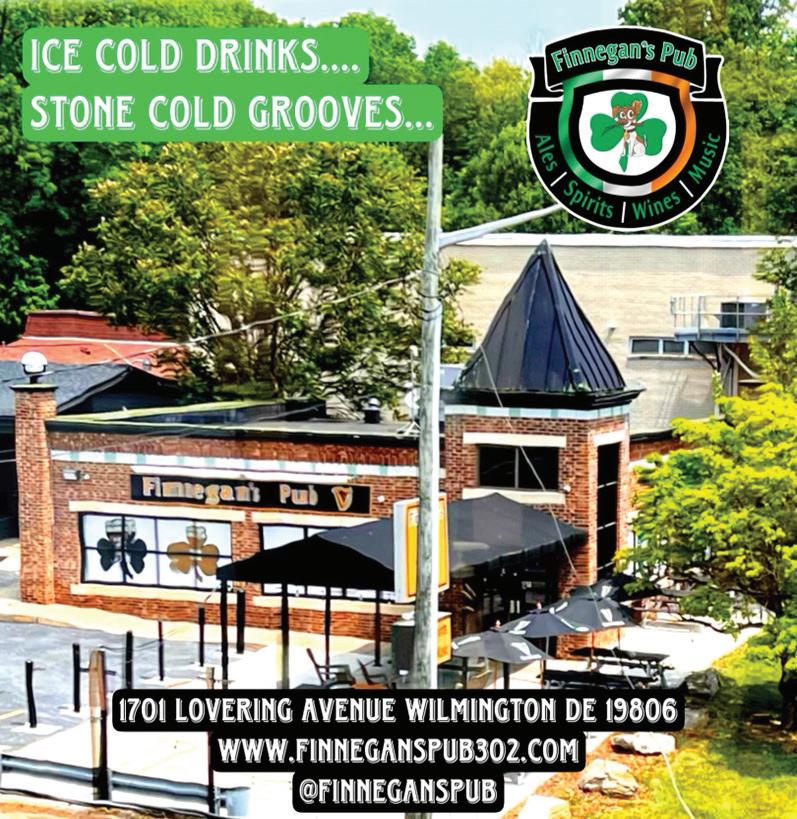
3 minute read
KEEPING THE DEAD ALIVE
Dose Hermanos’ appearance at Weekend at Bertha’s features
Grateful Dead alum

Tom Constanten and Bob Bralove
By Matt Morrissette
With both members having indisputable links to the Grateful Dead family tree, the psychedelic, improvisational keyboard combo known as Dose Hermanos is returning to Delaware July 28-30 to headline the well-established counterculture festival Weekend at Bertha’s in Townsend.
Featuring Tom Constanten, who nominally replaced beloved Dead keyboardist, Ron “Pigpen” McKernan, in the late 1960s, and Bob Bralove, a synthesizer guru who worked closely with Stevie Wonder before becoming the architect of the Dead’s forays into more modern keyboard textures in the late 1980s, the duo has released five albums over their somewhat sporadic recording and touring career, including their most recent effort, Persistence of Memory, from 2022.
We got a chance to fire a few questions at Constanten and Bralove before this month’s show. ►




How would you describe Dose Hermanos to people who may be interested in the show but unfamiliar with the music?
Bralove: Dose Hermanos is about the psychedelic view of the music from a different perspective. That perspective is so liquid in nature that we see it as non-stop improvisation. It is a constant riding of the waves of the moment and transcending the boundaries of musical expression. We are keyboard players steeped in the traditions of the Grateful Dead and an understanding of all schools of improvisation. We draw on all sorts of music for inspiration but always try to be original. At the Weekend at Bertha’s Festival, we will be performing with a quartet with Peter Lavezzoli on drums and Paul Avrutin on bass. This will definitely increase the groove factor on this gig. I am very excited about playing with these guys. They are amazing improvisers.
Constanten: I’d seen Bralove around at Grateful Dead shows. He even invited me to join his band, Second Sight, for a show in San Francisco. At Jerry [Garcia’s] memorial we agreed that the way to go forward was to keep the music alive. There was no doubt but that it’s what Jerry would’ve wanted us to do. So, I went to Bob’s studio, and pretty soon we were improvising our way into new dimensions. Drawing on both our backgrounds, we brought it all to the table, and were delighted by the results. What we do is not so much a composition that is performed as a performance that is composed. There’s the excitement of discovery, knowing that we’re making it all up as we go along. We have discussions, insights, even an occasional argument here or there. Often, we’ll perceive musical ideas from different angles. Other times we’re obviously congruent. Yet others find us in different worlds. We tailor our efforts to the occasion — the venue, the audience — they all influence the paths we take.
Tom, you studied music with Phil Lesh (Grateful Dead bassist) at U.C. Berkeley, continued your education in Brussels and Paris, then joined the Grateful Dead in 1968. Describe those times.

Constanten: Phil was in the music department. I was there on a science scholarship. Strange as it might seem these days, there was a lot of interest in science then. Sputnik, ya know. The space race. I wound up sharing an apartment with him and music made its way to the front burner. Phil and I both signed up for renowned Italian experimental composer Luciano Berio’s class at Mills College in Oakland, California. After, Berio arranged for me to study with him in Italy and to attend the Darmstadt International Summer Courses for New Music.
You played on the Grateful Dead’s classic Live Dead album. How does it feel to be part of something so influential, particularly the quintessential version of “Dark Star”?
Constanten: There is only one “Dark Star” as far as I’m concerned. It isn’t a piece that has a beginning, middle, and end so much as a stream that you enter and explore for a while. The stream flows from a fountain that’s been going on for who knows how long. ► of “Dark Star” on In Search of Intelligent Life, originally released by Relix Records and soon to be re-released. We certainly will reference that tune at Weekend at Bertha’s. It is a classic.
What was it about San Francisco in the late ‘60s that helped create so many great live bands?
Constanten: There are so many influences that came together. The postwar prosperity, the Beats, civil rights issues, and then there’s the fact that there was a war going on. Music was a significant part of a multiring circus. However that all parses out, it seemed like it wasn’t something you made happen, but something you let happen.
What’s next for Dose Hermanos?
Bralove: Tom and I are always doing different non-Dose projects. Tom arranges and performs material with a string quartet and is working on a record of piano music. He’s always doing something interesting. I am working on another museum installation of my video art, painting, and writing songs.
— Let your inner Deadhead (we all have one) loose at Weekend at Bertha’s on July 28-30 at Firebase Lloyd, 474 Fleming Landing Rd., Townsend, Del. For information on camping and tickets, visit weekendatberthas.com.












